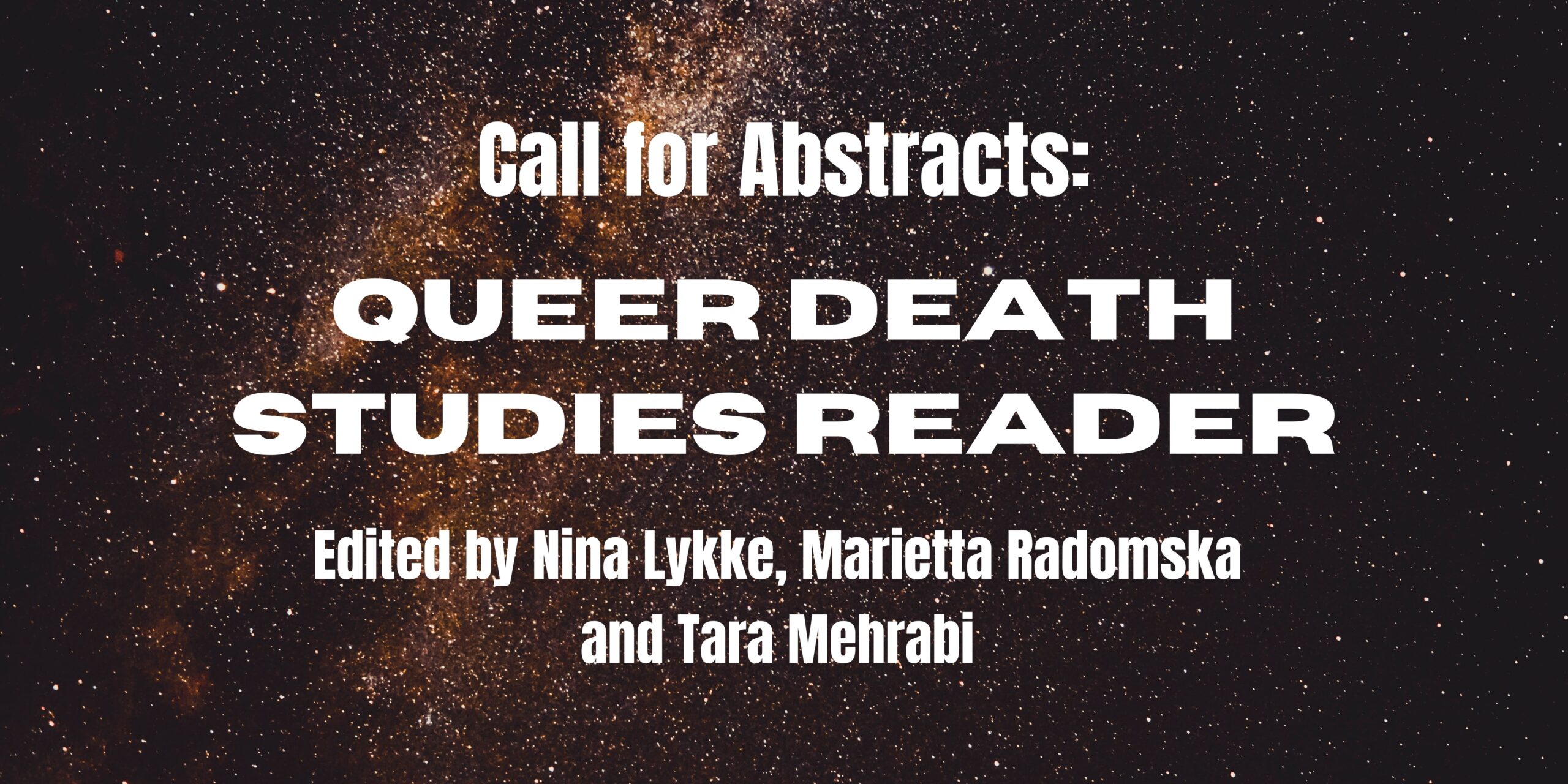-

Call for abstracts: Queer Death Studies Reader. Edited by Nina Lykke, Marietta Radomska and Tara Mehrabi
The field of Queer Death Studies The planned reader will gather a wide range of contributions to the field of Queer Death Studies (QDS). This […]
-
The Posthumanities Hub Seminar with Prof. Patricia MacCormack, 30th January 2020, 13:15-15:00, KTH
Welcome to the first Posthumanities Hub event in 2020 – the seminar with Prof. Patricia MacCormack (Anglia Ruskin University, UK) on A Joyful Apocalypse: Activism […]
-
The First International Queer Death Studies Conference: CfP deadline 30 June!
The First International Queer Death Studies Conference: “Death Matters, Queer(ing) Mourning, Attuning to Transitionings” 4-5 NOVEMBER 2019, KARLSTAD UNIVERSITY, SWEDEN ORGANISERS: Queer Death Studies Network […]